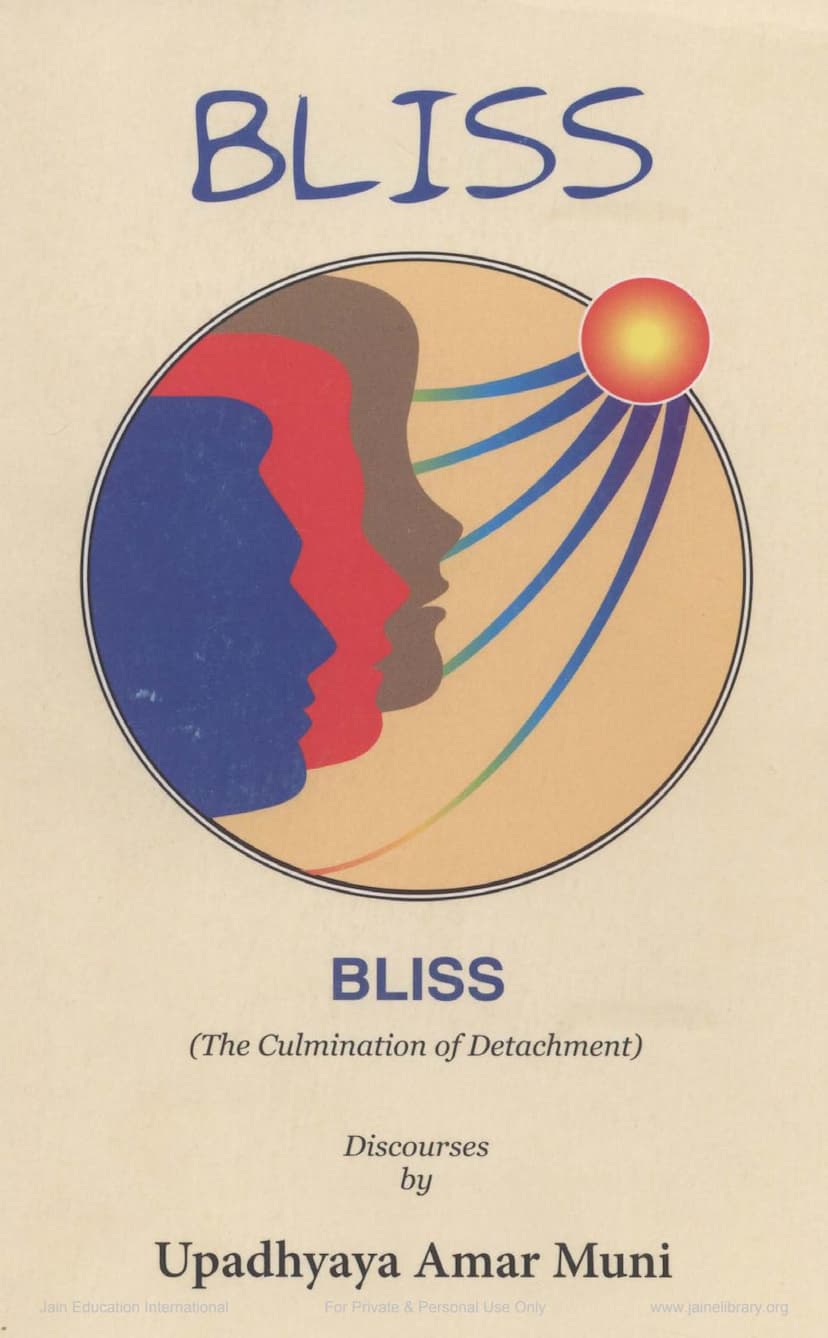Bliss
Added to library: September 1, 2025

Summary
"Bliss (The Culmination of Detachment)" by Upadhyaya Amar Muni, published by Sanmati Gyan Pith Agra, is a collection of discourses that delves into the Jain principle of Aparigraha (non-possession or non-attachment). The book emphasizes that true bliss is achieved through detachment, which is the ultimate outcome of understanding and practicing non-possessiveness.
The central theme of the book revolves around the concept of possessiveness, which is presented not merely as the accumulation of material wealth, but as an inner state of attachment and desire. The author posits that desires are unlimited, like the sky, and can never be fully satisfied. This unending pursuit of desires leads to suffering, conflict, and unrest in individual lives and society at large.
Key takeaways from the discourses include:
- The Nature of Possessiveness: Possessiveness stems from desire and attachment to objects, thoughts, relationships, and even one's own body and actions (karmas). It is the "I" and "mine" consciousness that creates possessiveness, not the objects themselves. Even a monk, with minimal possessions, can be possessive if attachment remains.
- Needs vs. Desires: A crucial distinction is drawn between needs, which are essential for survival and well-being, and desires, which are limitless wants driven by ego and craving. The path to peace lies in fulfilling needs while limiting desires.
- The Individual and Society: The book explores the interconnectedness of the individual and society, advocating for generosity, empathy, and a sense of collective responsibility. True progress lies in balancing individual autonomy with societal harmony, understanding that individual welfare is intrinsically linked to societal welfare.
- The Path to Spiritual Enhancement: The discourses highlight that spiritual growth requires moving beyond superficial external practices to internal transformation. This involves cultivating an inner vision, practicing vigilance, and discriminating between needs and desires. The path of sadhana (spiritual practice) is presented as a journey of self-discovery and gradual control over impulses.
- The Flame of Avarice: The book powerfully illustrates how greed and avarice, fueled by unlimited desires, lead to conflict, destruction, and a loss of inner peace. It critiques the modern pursuit of wealth and power without ethical considerations, emphasizing that true contentment comes from within, not from external accumulation.
- Attachment is Bondage, Detachment is Liberation: The core message is that attachment to possessions, desires, and the ego leads to bondage, while detachment, cultivated through self-awareness and control of desires, leads to liberation. This detachment is an art that requires willingness and inner transformation.
- Religion in Everyday Life: The discourses stress that Jainism's principles, such as non-violence (ahimsa) and non-possessiveness (aparigraha), are not meant for ascetics alone but are integral to daily life. Righteous conduct, supported by knowledge and faith, is essential for a holistic life. The importance of ethical earning, responsible use of wealth, and the deeper meanings of festivals are also discussed.
- The Canvas of Life is Larger than the 'Self': The ultimate aim is to broaden one's perspective from a narrow ego-centric view to a universal one, recognizing that true welfare lies in collective good and social evolution. This involves shedding ownership beyond necessary limits and embracing a spirit of giving and social responsibility.
- Non-Possessiveness as a Universal Framework: The principle of non-possessiveness is presented as a universal ideal found across various religions and philosophies, emphasizing detachment, simplicity, and the control of desires as the pathway to peace and liberation.
Ultimately, "Bliss" guides the reader toward understanding that true happiness and spiritual fulfillment are found not in what one possesses, but in the detachment from possessions and the mastery over one's desires, leading to a life of peace, contentment, and universal love.